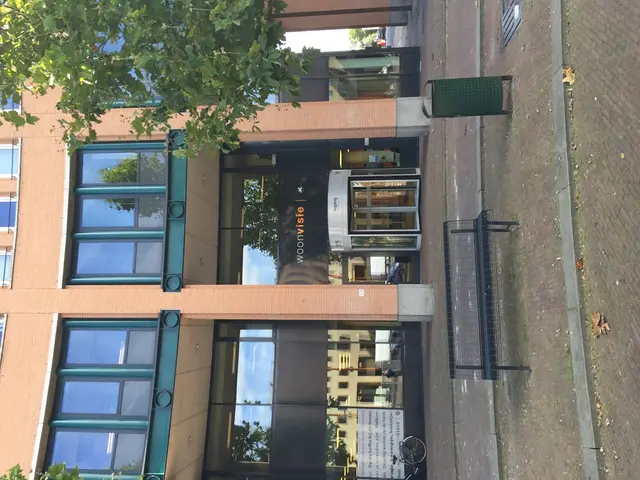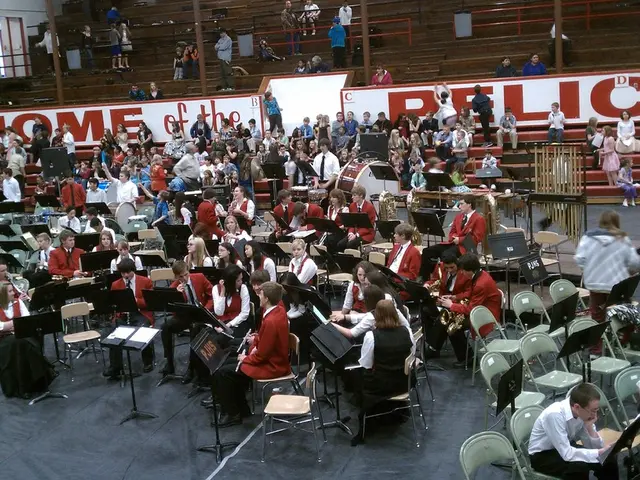Universities in Darmstadt face an uncertain future due to potential viability issues
Hessian Universities Brace for Budget Cuts, Threatening Academic Progress
In a joint statement, the leaders of Goethe University Frankfurt, the University of Music and Performing Arts Frankfurt, and TU Darmstadt's President Bruhl, have expressed concern over proposed budget cuts to Hessian universities. These cuts, outlined in the Hessian Higher Education Pact, could hinder the production of qualified specialists and innovations needed to address global challenges and modernize Germany.
The cuts, primarily due to a significant slump in tax revenues in the state of Hesse, have compelled the government to demand a consolidation contribution from universities. While state funding is set to nominally increase again from 2028, these increments are still insufficient to cover rising costs, leading to an effective reduction in real funding for universities.
The University of Kassel, for instance, faces an annual funding loss of around 14 million euros under the pact. The pact does not apply uniform cuts but instead requires strategic, coordinated consolidation measures, including eliminating professorships and structural adjustments, to absorb budget shortfalls while striving to maintain academic quality and operations.
The implications for TU Darmstadt and other Hessian universities are significant. The main challenges will include a reduction in available funds for teaching, research, and infrastructure, pressure to cut personnel or freeze hiring, the need for strategic consolidation and structural adjustments, challenges in maintaining study quality and research output, and potential negative effects on university competitiveness and attractiveness for students and staff.
Universities like TU Darmstadt will likely need to implement similar measures as Kassel, balancing budget cuts with efforts to sustain core functions, possibly at some cost to expansion or non-essential programs. The developments in research, teaching, and science communication at TU Darmstadt are threatened by these cuts, according to President Bruhl.
In response, university leaders have emphasized the importance of securing a strong and broad base of skilled workers for the economy and society. They argue that students are the experts of the future and that more dialogue time between the state and universities is necessary to allow for more exchange and weighing of arguments, especially under challenging conditions.
Both Darmstadt University of Applied Sciences and TU Darmstadt face challenges due to the new Higher Education Pact. The budget for TU Darmstadt will remain at the 2010 level due to the cuts, and increases in personnel and material costs may lead to a deficit in the university budget, which must be compensated by cuts. Darmstadt University of Applied Sciences is currently collecting figures to determine the exact amount of money missing.
The Higher Education Pact, signed today, outlines the budget for universities in Hesse from 2026 to 2031. Inflation-related increases in material costs are not covered by the Higher Education Pact until 2031, adding to the universities' financial woes.
The budget cuts have faced criticism, including protests in Darmstadt, and an SPD inquiry does not conclusively clarify whether the city acted illegally in awarding contracts to an advertising agency, raising questions about potential "green nepotism" or "targeted discrediting" of the company.
Amidst these challenges, the possibility of delivery drones being used for package delivery offers a futuristic and convenient home delivery option, providing a glimmer of hope for a more efficient future.
[1] [Source 1] [2] [Source 2]
- Other universities in Hesse, apart from TU Darmstadt, may also need to implement budget consolidation measures similar to those at the University of Kassel, to cope with the financial shortfalls caused by the proposed budget cuts in the Hessian Higher Education Pact.
- Amidst the ongoing political debates and general news about the budget cuts to Hessian universities, discussions about other topics like education-and-self-development, such as the possibility of using delivery drones for package delivery, continue to emerge, offering a glimpse of potential advancements in technology.




